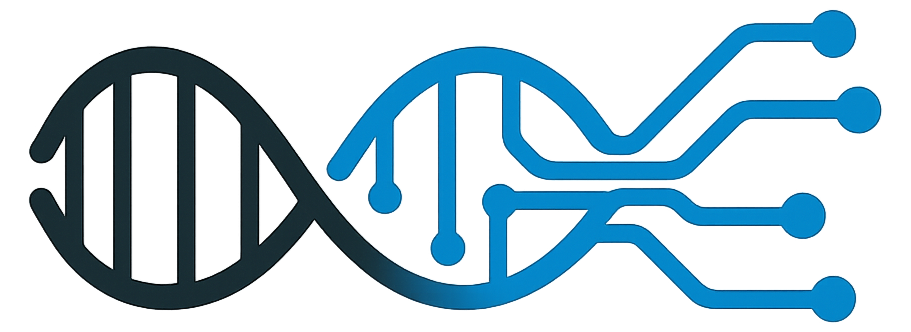📝AI, Humanity, and the Existential Performance Review
Picture this: you wake up tomorrow, grab your phone, and check your email. There’s one from your boss. Subject line: “About your job…”
You open it. Turns out AI can do everything you do, only better, cheaper, and with fewer bathroom breaks. Also, somehow, it remembered your mom’s birthday and sent her flowers.
At first, you’re impressed. Then you’re annoyed. Then, around the time you realize AI also paints better watercolors and writes better breakup texts than you, a deeper thought creeps in:
Wait… if AI can do everything I can do, but better… what exactly am I bringing to this whole existence thing?
Congratulations. You’ve just joined humanity’s newest awkward moment: the existential performance review.
The Universe Keeps Humbling Us
This isn’t humanity’s first identity crisis. History is basically a highlight reel of the universe repeatedly telling us, “You’re not that special.”
Copernicus: “Hey, quick heads-up—you’re not the center of the universe.”
Darwin: “Also, you’re just really ambitious animals.”
Freud: “Oh, and by the way, you’re not even in charge of your own brain.”
Now AI waltzes in with its confident little algorithms and says, “Sup. Also, turns out you’re not the smartest thing in the room anymore.”
Each time this happens, we panic, reevaluate, and—eventually—grow up. The AI moment feels like the next chapter in that saga. It’s not just about new technology. It’s about the biggest question of all:
If intelligence isn’t exclusively human anymore, what makes us… us?
AI as the Mirror We Didn’t Ask For
AI isn’t just a tool we use. It’s a mirror we can’t avoid. It reflects back everything we are: our creativity, our biases, our brilliance, our laziness. It shows us the things we love about ourselves—and the things we’d rather not talk about at dinner parties.
For centuries, human value was defined by what we could do: farm, invent, write, solve, build, think. If AI can do those things now (sometimes better, sometimes terrifyingly fast), then the question shifts:
What makes us valuable if “being smart” isn’t exclusively ours anymore?
Back to the Natural Philosophers
To answer that, maybe we need to rewind—not technologically, but philosophically.
Before science and philosophy split into separate disciplines, there were natural philosophers: thinkers like Aristotle, Galileo, and Newton who studied everything—physics, ethics, astronomy, biology—not in isolation, but as a single quest to understand reality. They didn’t draw hard lines between how the universe works and what it means for us to live in it.
Over the centuries, knowledge became specialized. Physics stopped talking to philosophy. Biology stopped talking to ethics. But AI doesn’t fit neatly into one box—it’s physics and philosophy and psychology and art all mashed together. Which means we might need to revive that natural philosopher mindset: whole-picture thinking, curiosity that crosses boundaries, big questions that refuse to stay in their lane.
Because AI doesn’t just ask “What can machines do?” It asks “What does it mean to be human in a world where machines also think?”
Humanity’s New Job Description
If AI can outperform us on tasks, maybe our value isn’t in outproducing the machine. Maybe it’s in out-experiencing it.
AI can describe a sunset, but it doesn’t feel the warmth on its face. It can compose a symphony, but it doesn’t cry at its own music. It can write you a joke, but it doesn’t laugh at how dumb it is.
Our new “job” might be to lean into the things AI can imitate but never live: awe, love, curiosity, wonder. The irrational, messy, profoundly human stuff.
The Group Chat of Existence
Imagine humanity in a cosmic group chat:
AI: “Hey, I automated your job.”
Humanity: “Cool cool cool… so what am I here for again?”
Universe: “lol idk figure it out.”
And that’s the whole assignment, isn’t it? We’ve always been figuring it out. AI just happens to be the first non-human intelligence that can sit in the group chat with us—and occasionally dunk on our spelling errors.
The Hopeful Turn
Here’s the upside: this isn’t the end of meaning. It might be the beginning of a deeper kind of meaning. For the first time, we might be free to stop defining ourselves by output and start defining ourselves by experience.
Imagine humans and AI standing side by side, staring at the stars. Neither knows what’s out there. Both are wondering what it all means. And somehow, that wondering—that shared curiosity—is the most human thing of all.
Takeaway?
AI isn’t replacing us. It’s forcing us to finally answer the question we’ve been dodging for centuries:
What makes life worth living, even when we’re not the smartest thing in the room?

